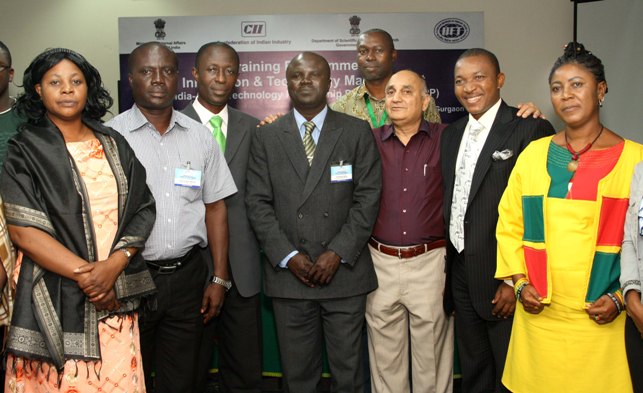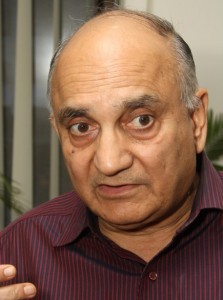New Delhi: The world is using Africa as a dumping ground for its products but only India is helping the continent in capacity building, a group of African professionals says, indicative that New Delhi’s proactive diplomacy is paying dividends.
“India is different. Most other nations are looking at Africa for dumping their products. India is looking at us for partnerships,” Michael Mwaniki Ngaari of the weights and measures department of Kenya’s trade ministry told IANS.

He was among 19 middle-level participants from three countries who attended a five-day India-Africa Technology Partnership Programme (IATPP) organised on behalf of the external affairs ministry by the Confederation of Indian Industry (CII) and the Indian Institute of Foreign Trade (IIFT).
The focus of the workshop was on management of international technology transfer for competitiveness and leveraging intellectual property rights for international technology transfer – building capacity in African nations to absorb new technologies.
More than the exposure to new trends in technology, the workshop was an eye-opener for Ngaari.
“We now know what the world is and what is expected from us,” said Ngaari, who lives in Nairobi with his wife and three children.
Much thought went into designing the workshop.

“Such workshops will further boost the relationship between India and Africa,” Bhatnagar added.
Terming the experience “fantastic”, Ghana’s Romaric Ababio Dankwa (32), who heads IT firm Seedway Services, stressed on translating the learning into practice.
“What we learnt here was beyond our expectations. Most of it was capacity building. I believe each one of us will act as a catalyst, develop strategies and float projects as only strategizing is not enough. We need to back our decisions with action,” Dankwa said.
Jessica Adjoa Manuel – also from Ghana – who runs a cosmetics business under the Jessica Black brand, said the response of Indians towards them was very warm and overwhelming.
“We used to hear that India was a land of snakes and spirits but things are just so different. India is just so warmer, even more than Ghana,” said Manuel.
She admitted that the visit had changed her line of thinking.
“My daughter wanted to go outside Ghana for her higher studies but I was really apprehensive and so I said a clear no. But after my visit to India, my vision has broadened and I look forward to sending my daughter to her choice of university,” Manuel said.
As for Gabriel Chingwe of Zambia, who works at the Lusaka Chamber of Commerce & Industry, he got a new name – Ashok – from his Indian friends during his visit and just didn’t feel like going back.
What Ngaari and the others felt was a reiteration of what Jean-Pierre Ezin, the African Union’s chief pointsperson for education, had said late last month.
“The Chinese will come and build roads, stadiums and infrastructure…. They will build labs, but who will run the labs?” Ezin asked while speaking to a visiting IANS correspondent in Addis Ababa last month. He paused for a moment and then replied: “Africa needs India for developing its most precious resource: human capital.”
India has pledged to build over 100 training institutes all over the continent at the last two India-Africa Forum summits held in New Delhi and Addis Ababa.
These institutions encompass a wide array of areas ranging from agriculture, rural development and food processing to information technology, vocational training, English language centres, and entrepreneurial development institutes.
The four institutions India has offered at the pan-African level include the Institute of Information Technology to be established in Ghana, the Institute of Foreign Trade in Uganda, India Africa Diamond Institute in Botswana and the Institute for Education Planning and Administration in Burundi.
These training institutes, India hopes, will help build the industrial and managerial base of the continent by spawning a new generation of entrepreneurs and an educated middle class that will shepherd African resurgence in the days to come.
India’s trade with Africa at $50 billion is nearly one third of that of China with the continent, but New Delhi has carved a niche for itself in capacity building. The training institutes distinguish India’s development-centric approach from that of China’s focus on massive infrastructure projects, hydrocarbons and mineral resources.
– By Priyanka Sahay (IANS)
The opinions, beliefs and viewpoints expressed by authors, news service providers on this page do not necessarily reflect the opinions, beliefs and viewpoints of Hill Post. Any views or opinions are not intended to malign any religion, ethnic group, club, organization, company, or individual.
Hill Post makes no representations as to the accuracy or completeness of any information on this site page.


